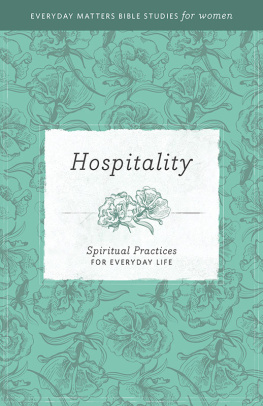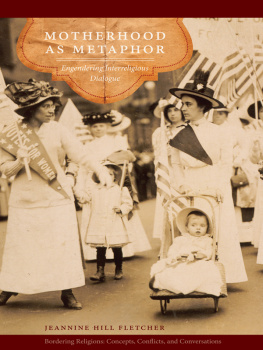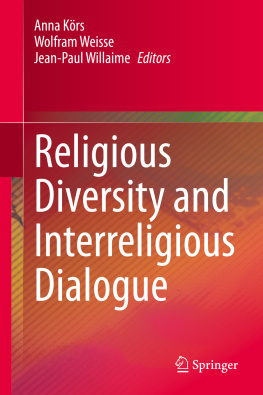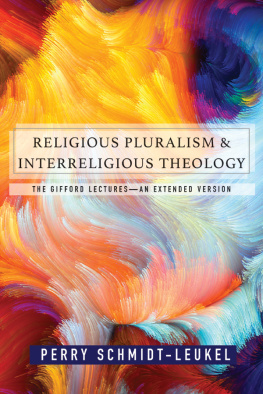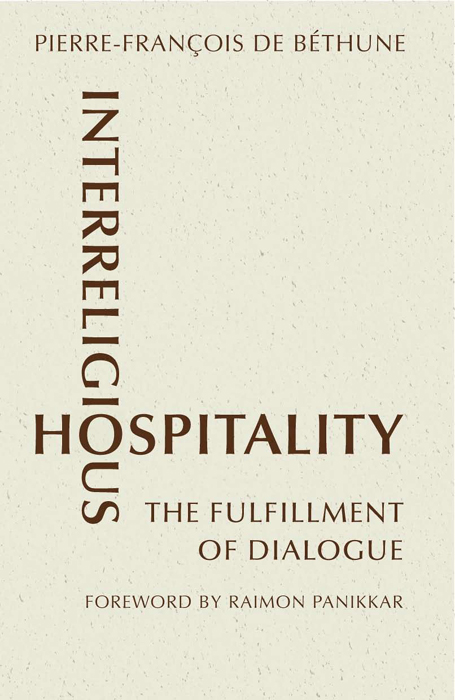INTERRELIGIOUS HOSPITALITY
MONASTIC INTERRELIGIOUS DIALOGUE SERIES
Interreligious
Hospitality
The Fulfillment of Dialogue
Pierre-Franois de Bthune
Foreword by Raimon Panikkar
Translated by Robert Henrey

LITURGICAL PRESS
Collegeville, Minnesota
www.litpress.org
Cover design by David Manahan, OSB.
Chinese names are transliterated into pinyinnow used almost universallyunless an older system such as Wade-Giles is used in a title.
This work was originally published in French under the title LHospitalit sacre entre les religions. Editions Albin Michel S.A. - Paris 2007.
Scripture texts in this work are from the Revised Standard Version of the Bible, copyright 1952 [2nd edition, 1971] by the Division of Christian Education of the National Council of the Churches of Christ in the United States of America. Used by permission. All rights reserved.
2010 by Order of Saint Benedict, Collegeville, Minnesota. All rights reserved. No part of this book may be reproduced in any form, by print, microfilm, microfiche, mechanical recording, photocopying, translation, or by any other means, known or yet unknown, for any purpose except brief quotations in reviews, without the previous written permission of Liturgical Press, Saint Johns Abbey, PO Box 7500, Collegeville, Minnesota 56321-7500. Printed in the United States of America.
1 2 3 4 5 6 7 8 9
Library of Congress Cataloging-in-Publication Data
Bthune, Pierre-Franois de.
[Hospitalit sacre entre les religions. English]
Interreligious hospitality: the fulfillment of dialogue/Pierre-Franois de Bthune; foreword by Raimon Panikkar; translated by Robert Henrey.
p. cm.(Monastic interreligious dialogue series)
ISBN 978-0-8146-3305-2ISBN 978-0-8146-3925-2 (e-book)
1. Catholic ChurchRelations. 2. Christianity and other religions. 3. HospitalityReligious aspectsCatholic Church. I. Title.
BX1786.B47 2010
261.2943dc22
2010002573
Mdese todo muy enhorabuena, Seor Dios,
por que hagamos asiento en ti.
Let all things change, Lord God,all to the good!
so long as we find in you our dwelling place!
Saint John of the Cross, Dichos de luz y amor, 34
Contents
Chapter 1
Chado (The Way of Tea)
Chapter 2
Sesshin (Meditation)
Chapter 3
Sodo (The Monastery)
Chapter 1
Monastic Encounters
Chapter 2
Dialogue and Hospitality
Chapter 3
Questions
Chapter 4
The Requirements of Hospitality
Chapter 5
At the Heart of the Gospel
Chapter 6
Christian Identity
Foreword
Here is a book that goes to the heart of interreligious dialogue. Genuine interreligious dialogue does not concern doctrine but rather the meaning that life has for each of us when we live out our religion. That is why I prefer to refer to this initiative as intrareligious dialogue since it concerns not only doctrine but also the very heart of the religious person.
I want to stress the point that intrareligious dialogue is in itself a religious act. This implies that the way in which we experience our own religion opens us up to a mystery over which we do not have exclusive property rights. Even if we are convinced that we are touching upon the truth, we are incapable of plumbing its depths.
To put it yet another way, I would say that in order to know a religion (and therefore be in a position to talk about it), it is necessary to share in the lives of those who believe in it. It so happens that another word to describe this sharing of life is hospitality. The practice of hospitality is one of the basic Christian values. It is not, however, unique to Christianity; it is part of virtually all cultures, from Babylon to China, India, and Australia.
Interreligious dialogue and hospitality always go together. Without such a dialogue, we turn inward, gasp for air, and tend to attribute absolute values to our beliefs. It is not possible to know another religion without practicing hospitality, not the way its believers live it out. If we fail to experience hospitality, we only have our own impression of that religion to go by, not what it really is.
Hospitality is more than a coming together under one roof. It requires that we eat together, and this partaking of the same food is, broadly speaking, eucharistic in nature. To quote an Afghani saying, it consists of a sharing of bread and salt. It is therefore significant that, in some instances, the act of partaking at the same table should have been subjected to certain constraints; the reason being that, if taken seriously, this form of sharing implies a form of communion, actual or potential. Hesitancy surrounding the act of partaking at the same tablea hesitancy present within classical Hinduismis explainable by reason of the fact that in order to fully share in such a sacred act, it is necessary to believe in it.
To invite a stranger to partake in a meal is the essence of hospitality. Traditionally the stranger was a pilgrim; he could well have been an angel, but in any case he was to be treated with due respect. Today, unhappily, there is reason to fear that the stranger might turn out to be a thief or a terrorist. Such a regrettable trend is probably attributable to the individualism that characterizes the modern world and is accompanied by a desacralization of the human person. To counter this tendency, it would be necessary to recall that the cosmotheandric vision of which I have spoken elsewhere stands for the proposition that all reality is mysterious, human and material, in other words, Silence, Word, and Bread. (See Raimon Panikkar, The Cosmotheandric Experience: Emerging Religious Consciousness [Maryknoll, NY: Orbis Books, 1993].)
Hospitality cannot be reduced to mere theory. It invariably demands practice, action, and, unequivocally, lovelove that is a precondition to knowledge: thus the importance of hospitality not only for dialogue but also for there to be peace among humans.
At the beginning hospitality was initiated at a personal level (not individually), but later it was institutionalized by the Church and then by the state. Would a destitute modern-day pilgrim find food and shelter wherever he went? Would a penniless stranger knocking on the door of a monastery be welcomed as if he were Christ? The question remains: how do we reconcile this prophetic vision with institutionalism? Bismarck once said that it would not be possible to use the Sermon on the Mount to build an empire. This is a very significant challenge. If all works of mercy are institutionalized, then we run a real risk of feeling that we are thereby freed from the obligation of practicing hospitality.
In any case, the practice of hospitality is essential to anyone who harbors feelings that are fully human; feelings, I might go so far as to say, that are indicative of a good state of health. The law of nature is not based on the principle of homo homini lupus, which seems to be the basis of contemporary culture, but rather on friendshipas taught by Christ. (See John 15:15.)
Pierre-Franois de Bthune has practiced hospitality, and he knows whereof he speaks, which is why his words carry weight, and not just within the monastic world, for, as he himself puts it, hospitality is among the most basic of human virtues. Thus, when monks practice hospitality, they do so in communion with all of mankind.


